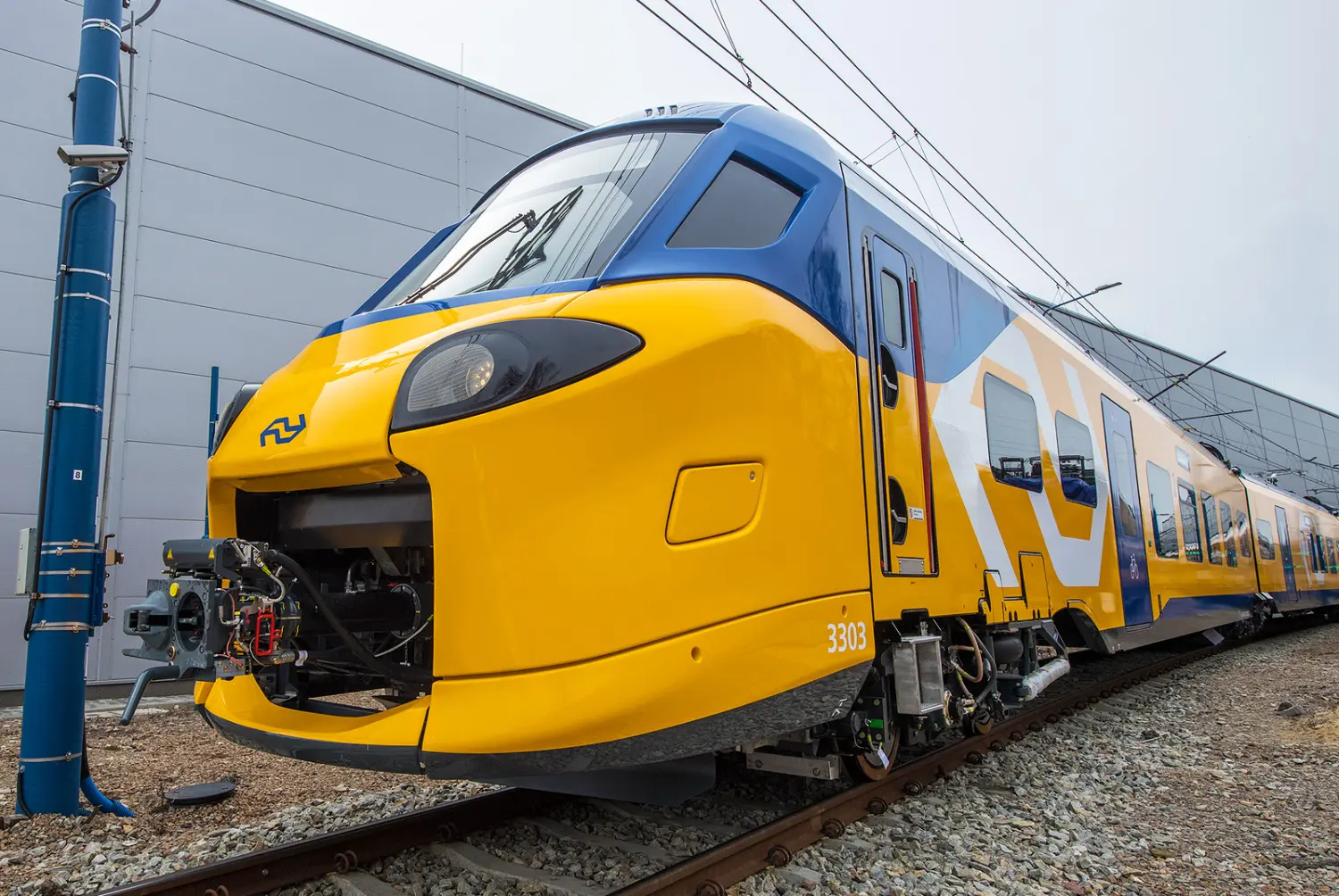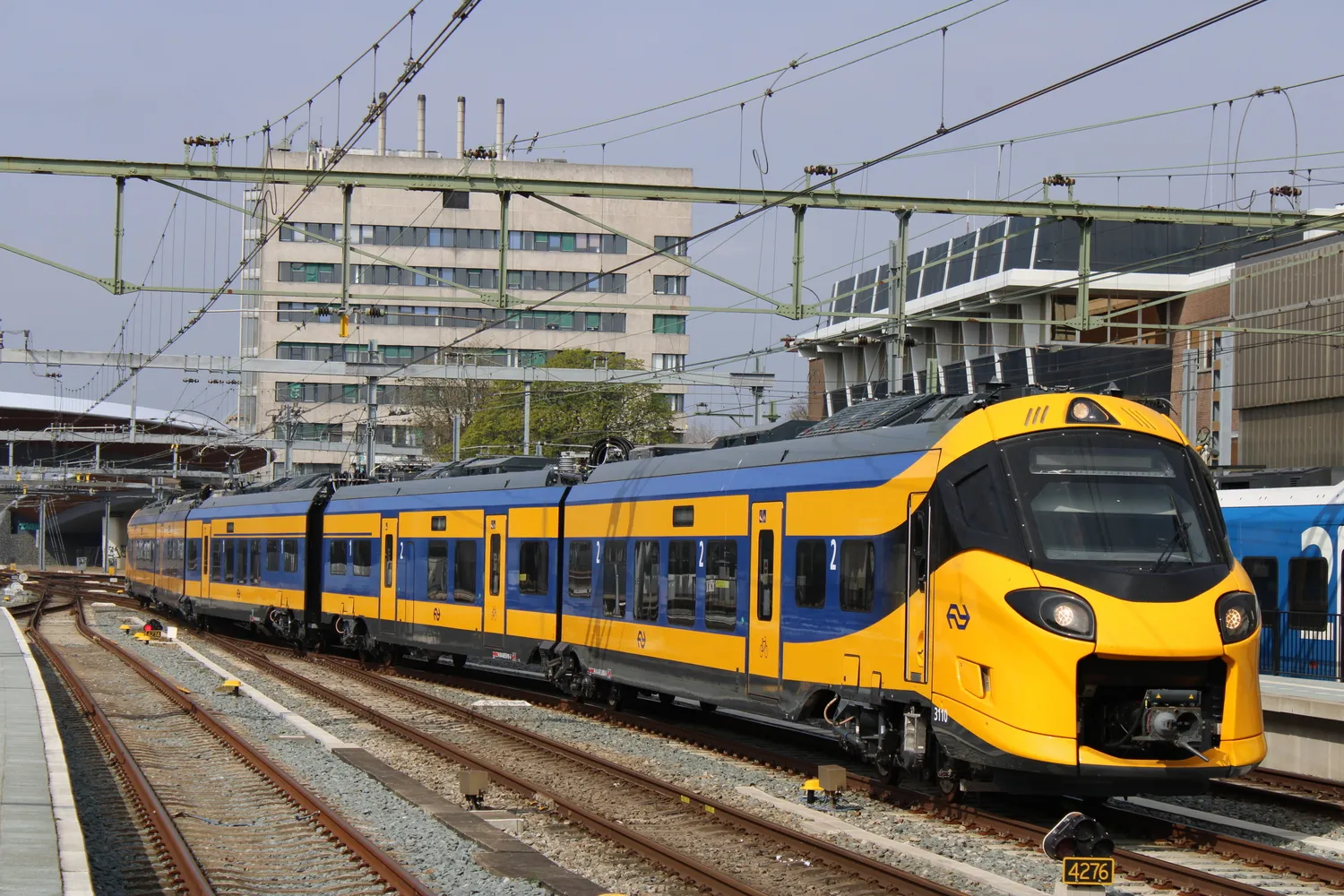
Source: commons.wikimedia.org
Also known as:
Vehicle type:
Registration country:
Railway companies:
2016
July 18
five-piece trains: 3101 to 3149;
eight-piece trains: 3201 to 3230.
The new Intercity trains will incorporate the latest technologies, providing high riding quality for passengers and NS staff. They feature spacious and well-lit multi-purpose areas for reading, resting, accommodating wheelchairs, and storing bicycles, as well as dedicated restrooms for individuals with reduced mobility. The trains are equipped with Wi-Fi and LED lighting, facilitating efficient passenger flow, and include a dynamic real-time passenger information system. All coaches are fitted with security cameras to enhance passenger and crew safety. The trains meet the highest interoperability standards and will be equipped with ATB and ERTMS systems. They can operate on 25 kV AC (High-Speed Line) and 1.5 kV DC (main railway network).
The new Intercity trains for NS belong to Alstom's Coradia range of modular trains, which have a proven service track record of more than 16 years.
The trains are designed and developed in Saint-Ouen (France) and Salzgitter (Germany) by an international team of experts from six different nationalities. They will be manufactured at Alstom's facility in Katowice (Poland). Other European sites involved in the project include:
Charleroi (Belgium) for on-board signaling;
Ridderkerk (The Netherlands) for commissioning, warranty, support, training, and services;
Valenciennes (France) for interior fitting;
Reichshoffen (France) for the design of the driver's cabin;
Ornans (France) for the motors;
Tarbes (France) for the design of the traction inverters and manufacturing of power modules;
Villeurbanne (France) for embedded electronics and passenger information systems.
2017
March 8
In 2025, the rolling stock currently in use between Amsterdam and Brussels will be due for replacement. The operator for the international services after 2025 has not yet been determined. However, under the current operational contract, NS is obligated to ensure continuity at the end of the concession. This clause was added to the contract due to past instances where NS postponed investments in new trains until it was assured of securing the operational contract.
These units are ordered for the sole purpose of obtaining authorization for Belgium, enabling NS (or maybe another operator) a quick approval of the new ICNG based on the so called Declaration of Conformity as the type will be authorized already.
Sources: https://railcolornews.com/2017/03/08/nlbe-dutch-railways-order-two-intercity-trains-for-amsterdam-brussels/, https://railcolornews.com/2019/05/09/nl-expert-video-watch-icng-running-in-the-czech-republic/
2017
October 3
NS states: “Our traveler is working, reading, or looking outside. He or she wants to sit comfortably, so seating comfort plays a crucial role. Therefore, travelers are involved in the design through the Train Test Team, which consists of 25 travelers representing the daily 1.2 million NS passengers. Several seats were tested and evaluated by the team. The Train Test Team also assessed the layout and artwork in various passenger spaces.”
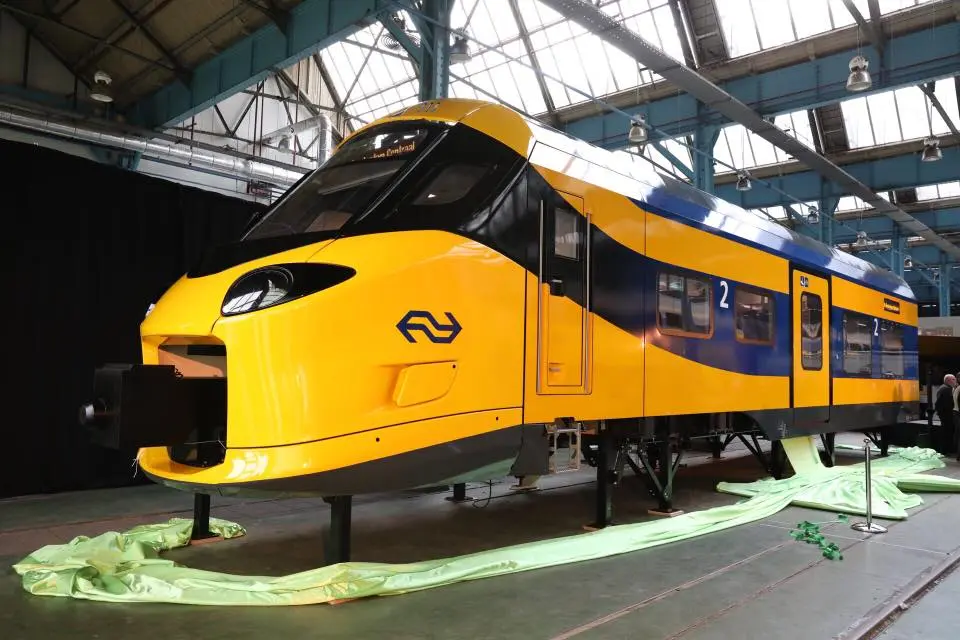
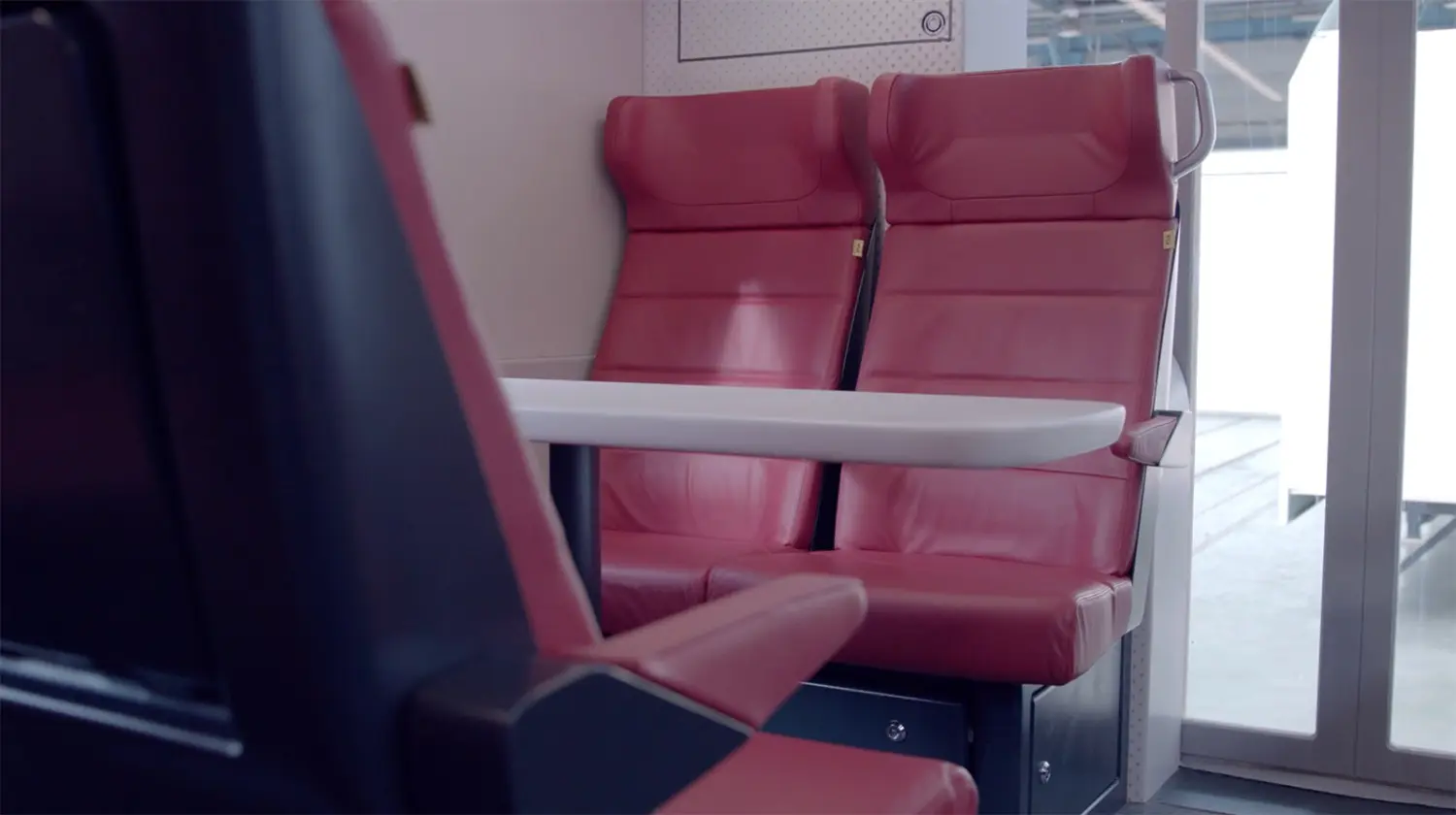
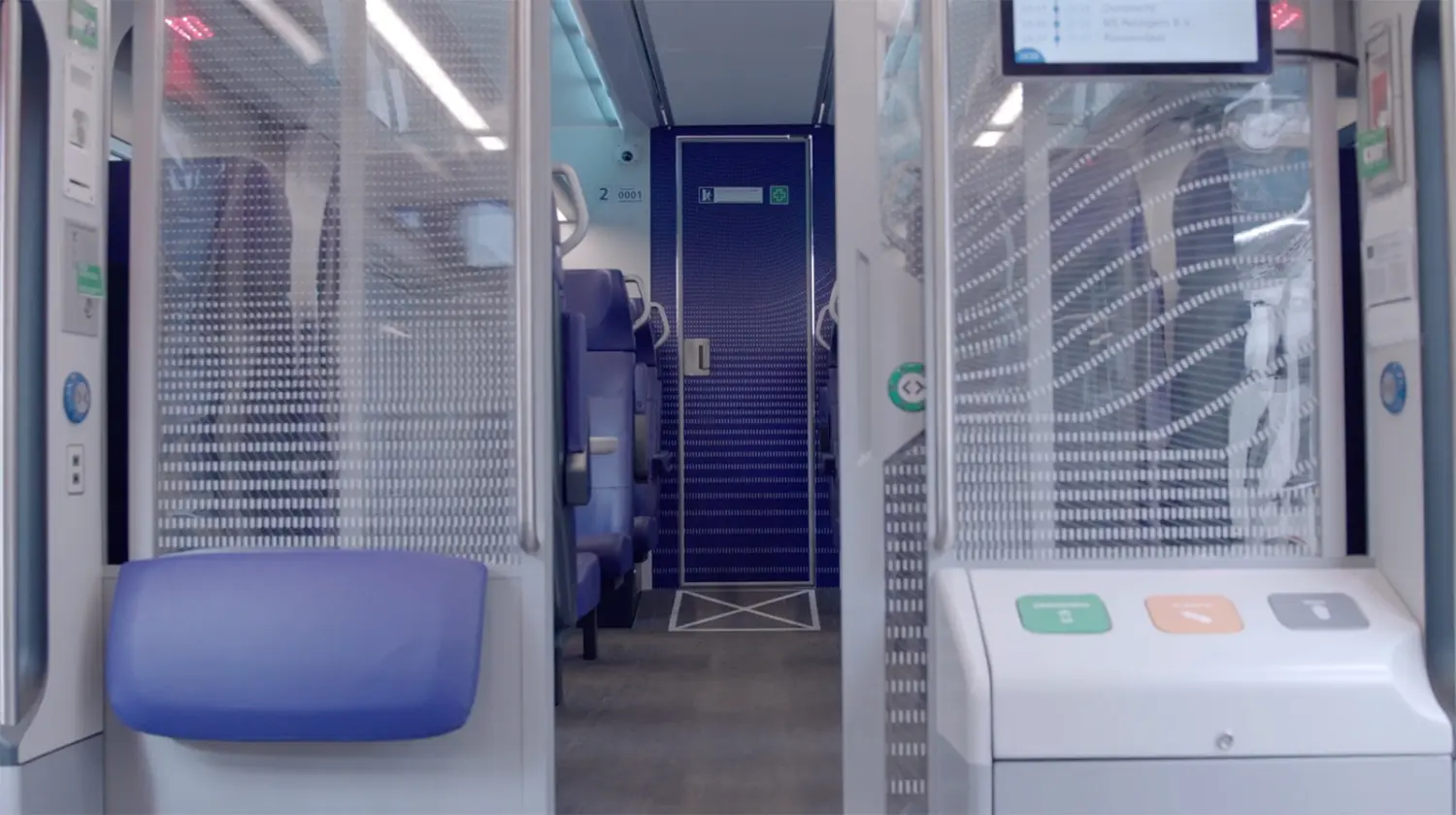
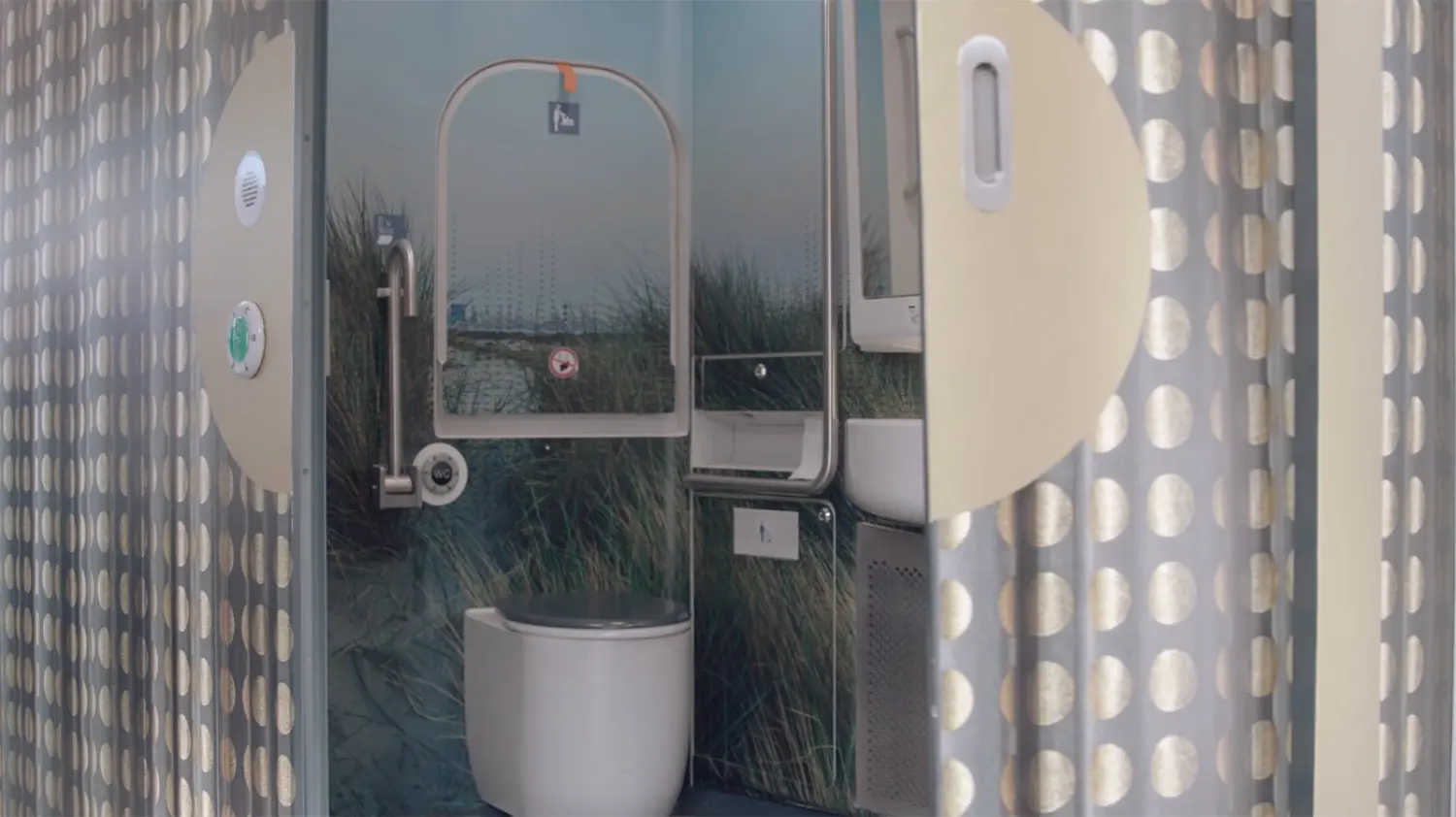
2018
November 29
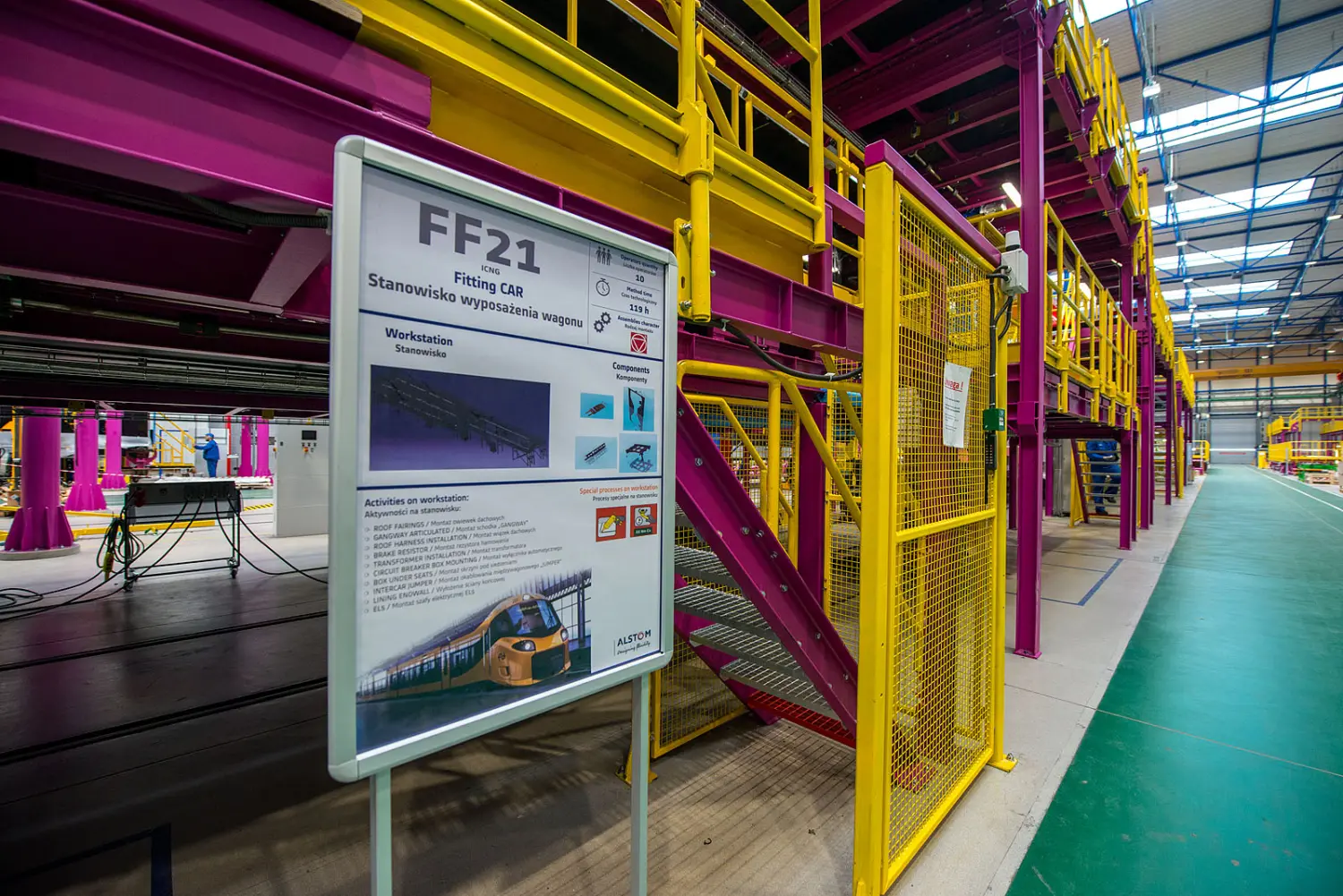
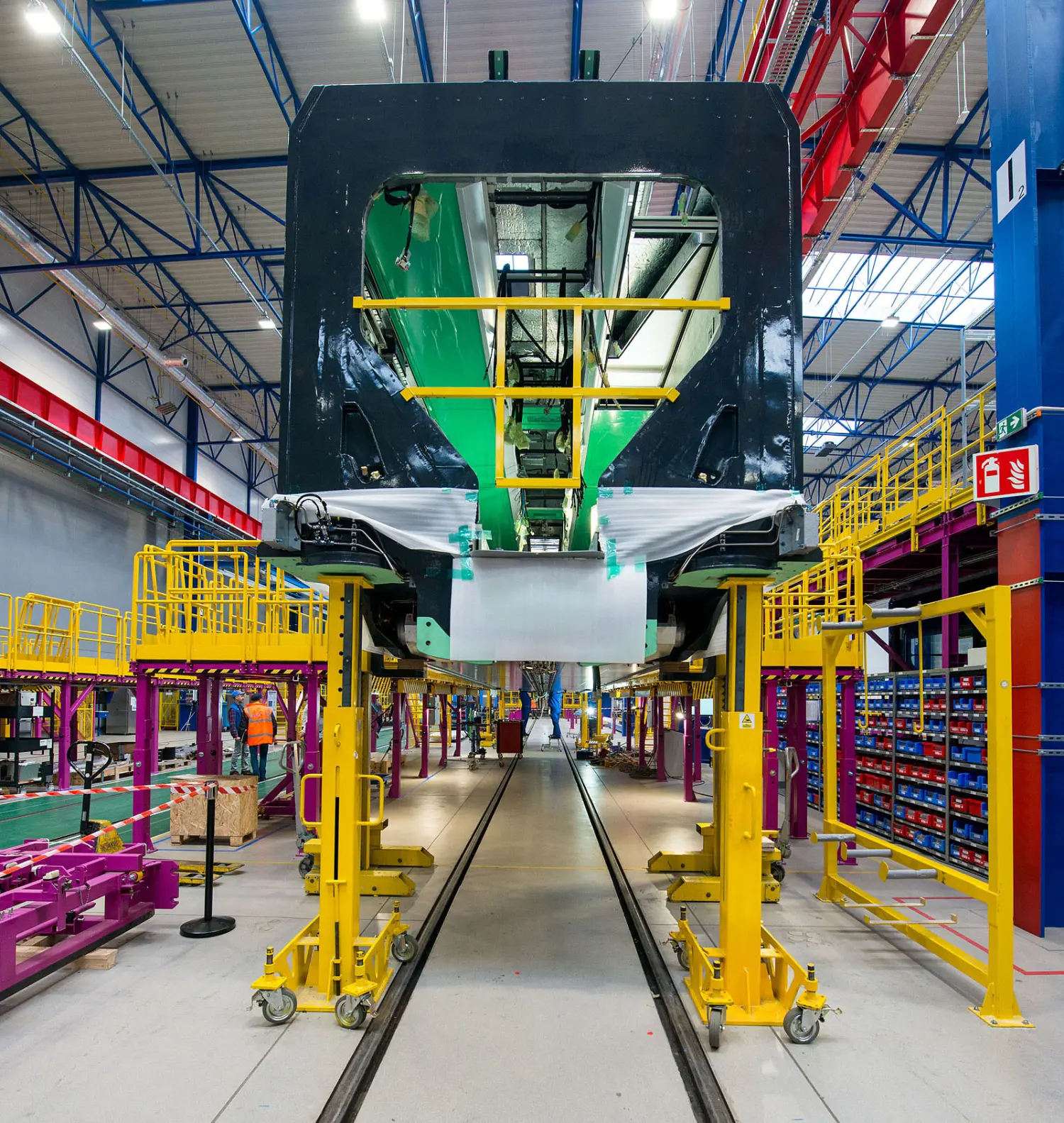
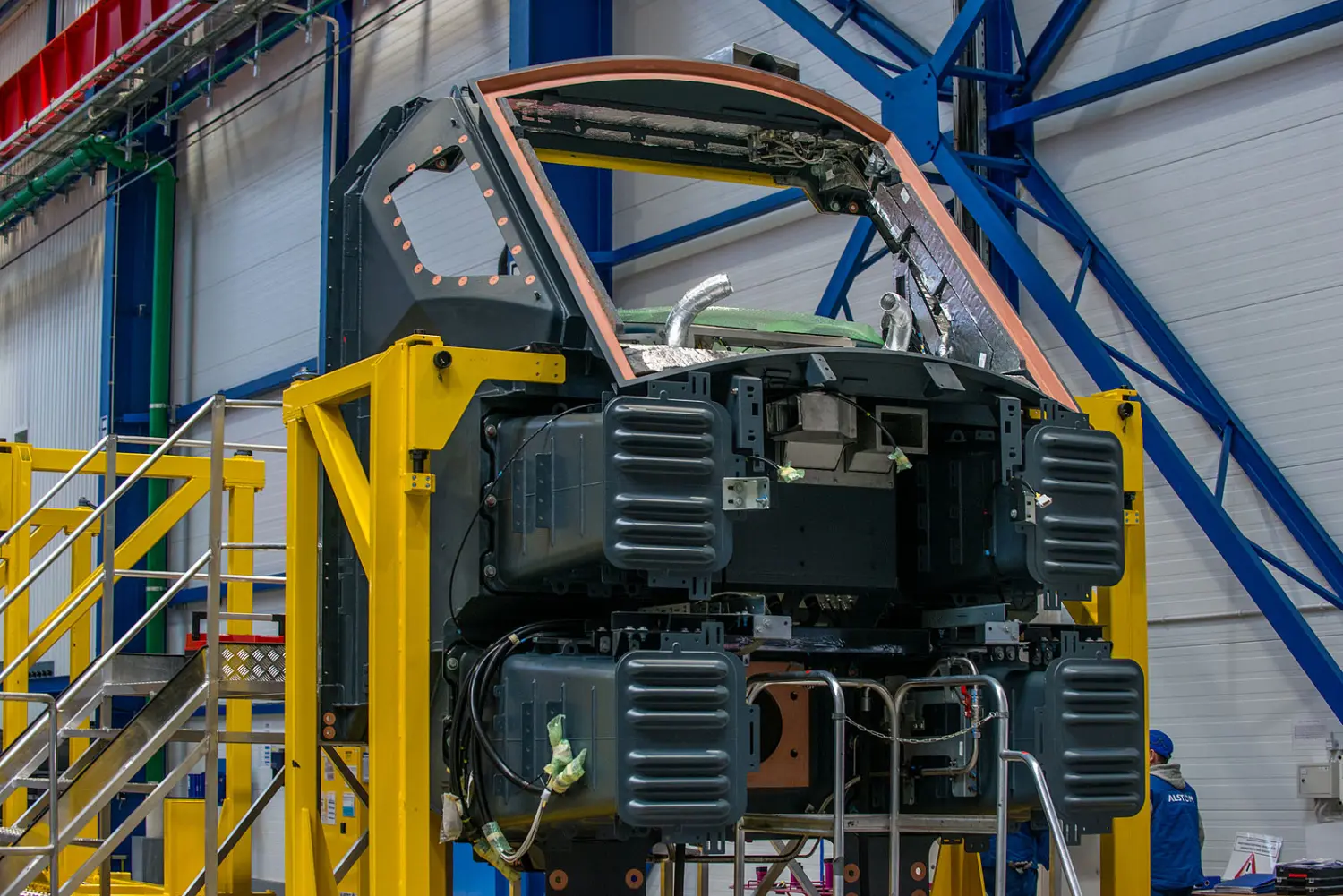
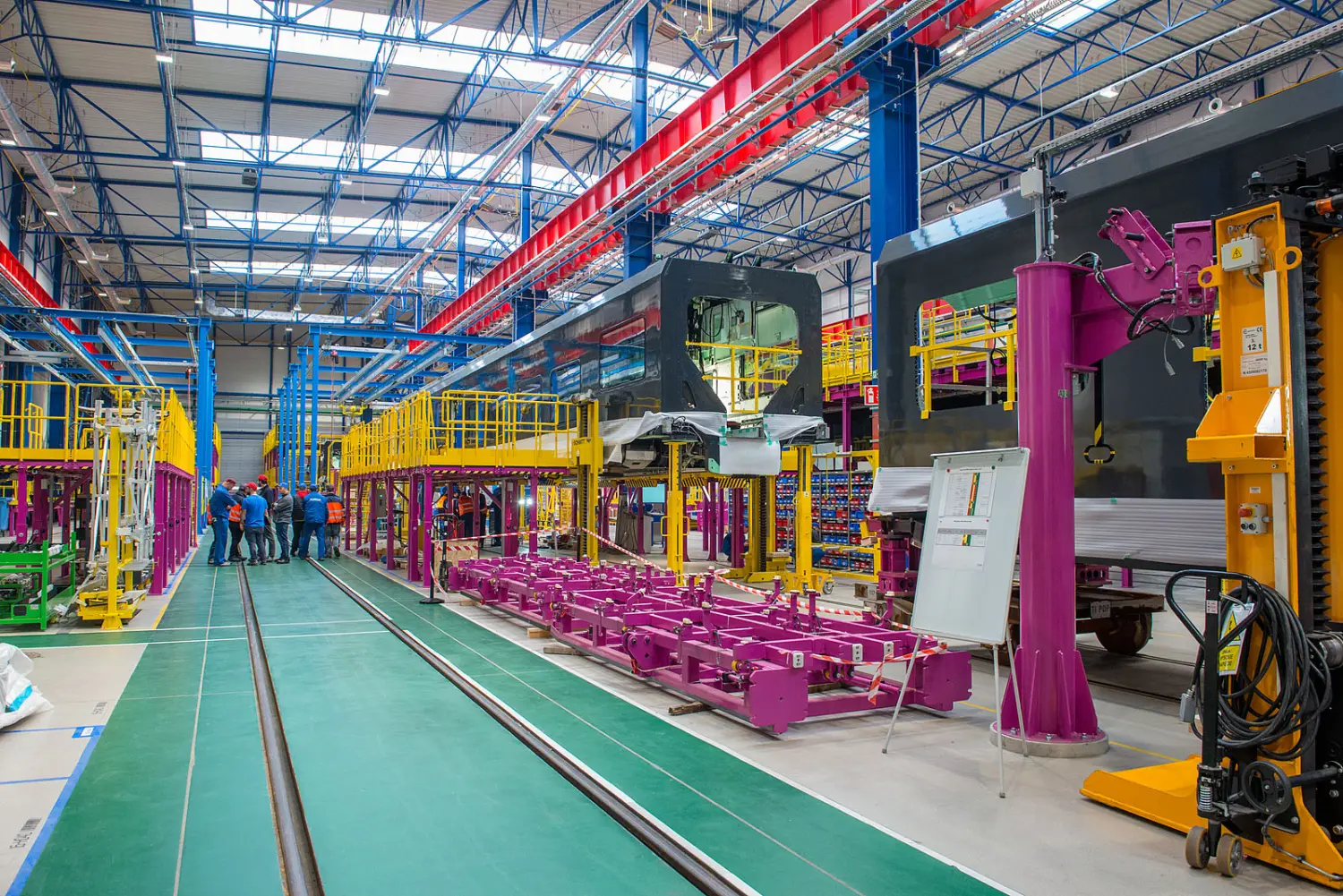
The fitting line is designed to produce one train car per day. Covering 6'500 square metres, it incorporates modern technologies and processes that enhance performance and reduce manufacturing time. The facility includes 20 workstations, facilitating the complete assembly process from pre-fitting to cabling and interior installation. The welding and erection of car bodies, painting, and final testing are conducted in separate halls.
2019
February
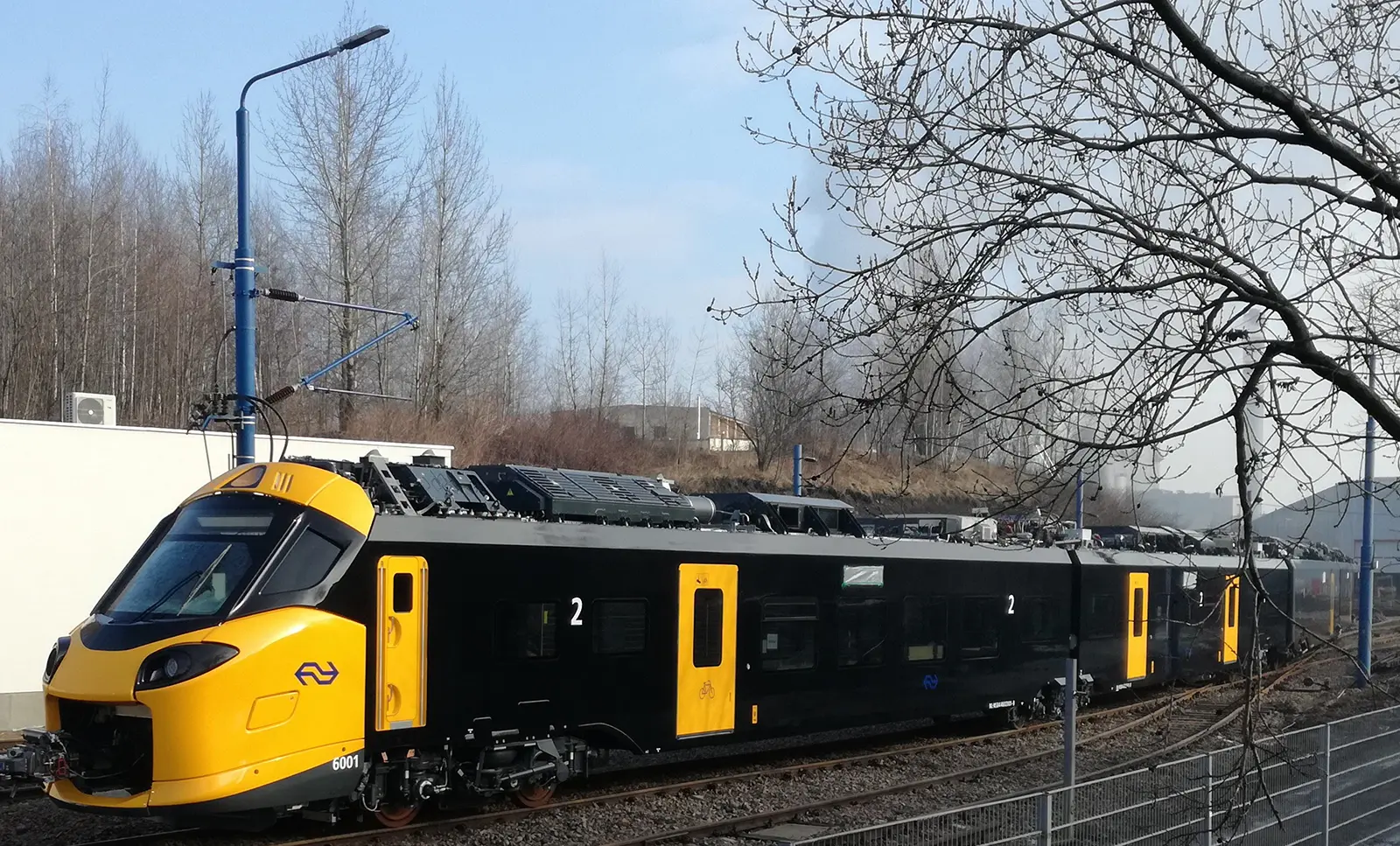
The first stop is Alstom’s factory in Salzgitter, Germany, where initial technical and static tests will occur. Dynamic testing will take place at the VUZ Velim test circuit in the Czech Republic. In Vienna, the train will undergo various weather tests. These testing programs are expected to take approximately one year to complete. Following this, an additional year is allocated for authorization and compatibility testing in the Netherlands.
The first revenue services are still scheduled to commence in 2021.
2019
May 9
2019
August 5
By 2025, these new trains will replace the loco-hauled rolling stock, consisting of Akiem/Macquarie Rail TRAXX locomotives and ICRmm coaches, on the route between Amsterdam and Brussels. The coaches will be scrapped, while the locomotives will be redeployed.
The new trains will be assigned numbers 3303 to 3320 and are expected to be operational in 2025.
Sources: https://railcolornews.com/2019/08/05/nl-dutch-railways-order-more-icng-trains-for-belgium/
2020
May 23
During the night of June 5th to 6th, 2020, both units conducted their first independent test drives in the Netherlands between Assen and Beilen.
2020
October 16
At approximately 11 AM, the train experienced reported braking problems upon reaching Dreileben-Drackenstedt. After running a red signal, it was redirected by DB Netz via a safety switch/catch point into a safety bumper/dead-end siding to prevent further incidents. The train overran the safety bumper and ended up in a field; the diesel locomotive performed a half somersault, with unit number 3105 derailing and landing on top of the diesel locomotive, while the second unit number 3109 remained on the track.
The train driver was able to exit the locomotive without severe injuries, and reportedly, no other individuals were involved in the accident. The incident resulted in heavily damaged new intercity trains and a destroyed diesel shunter. Heavy cranes from Leipzig arrived the following day to begin recovering the derailed vehicles.
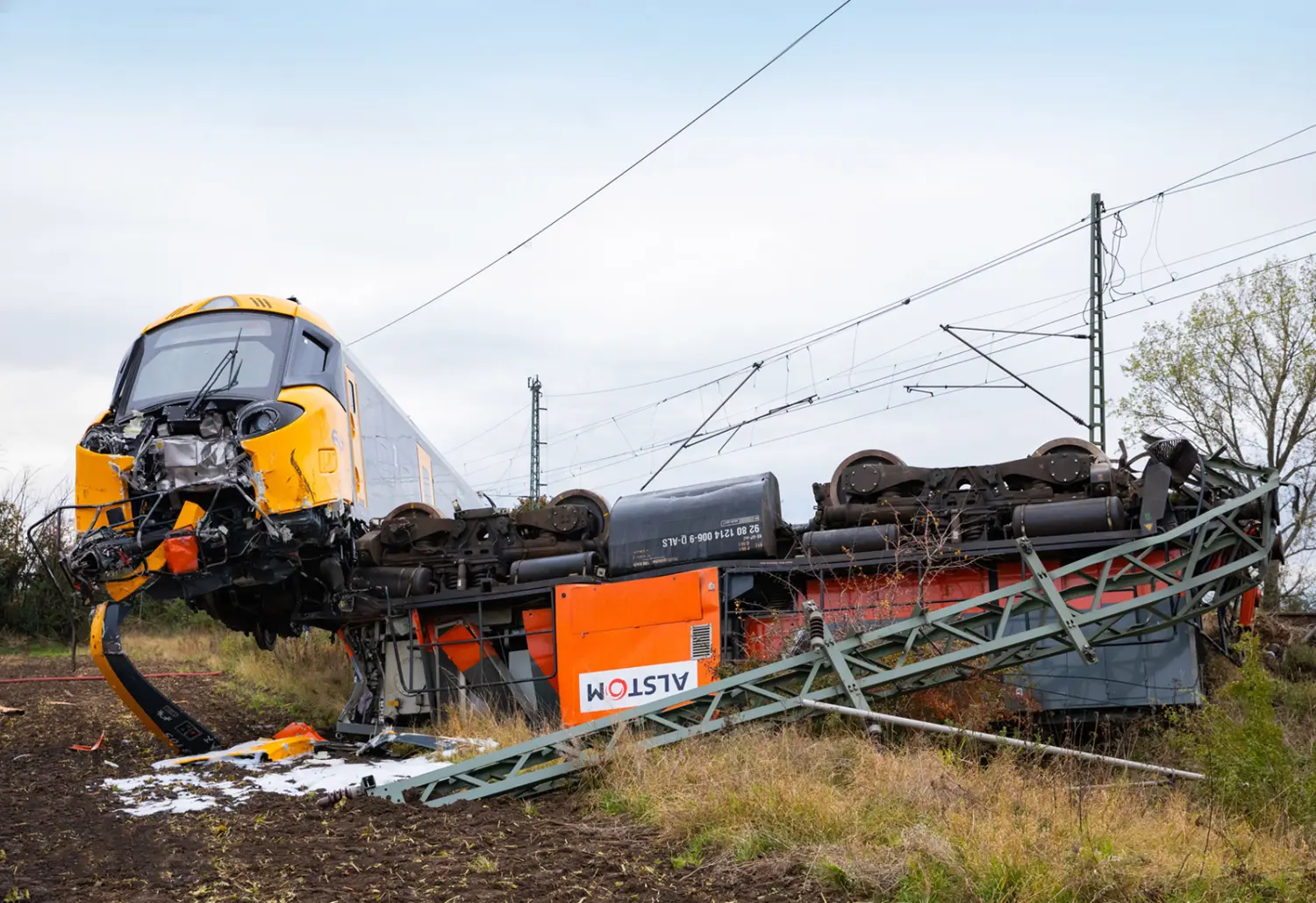
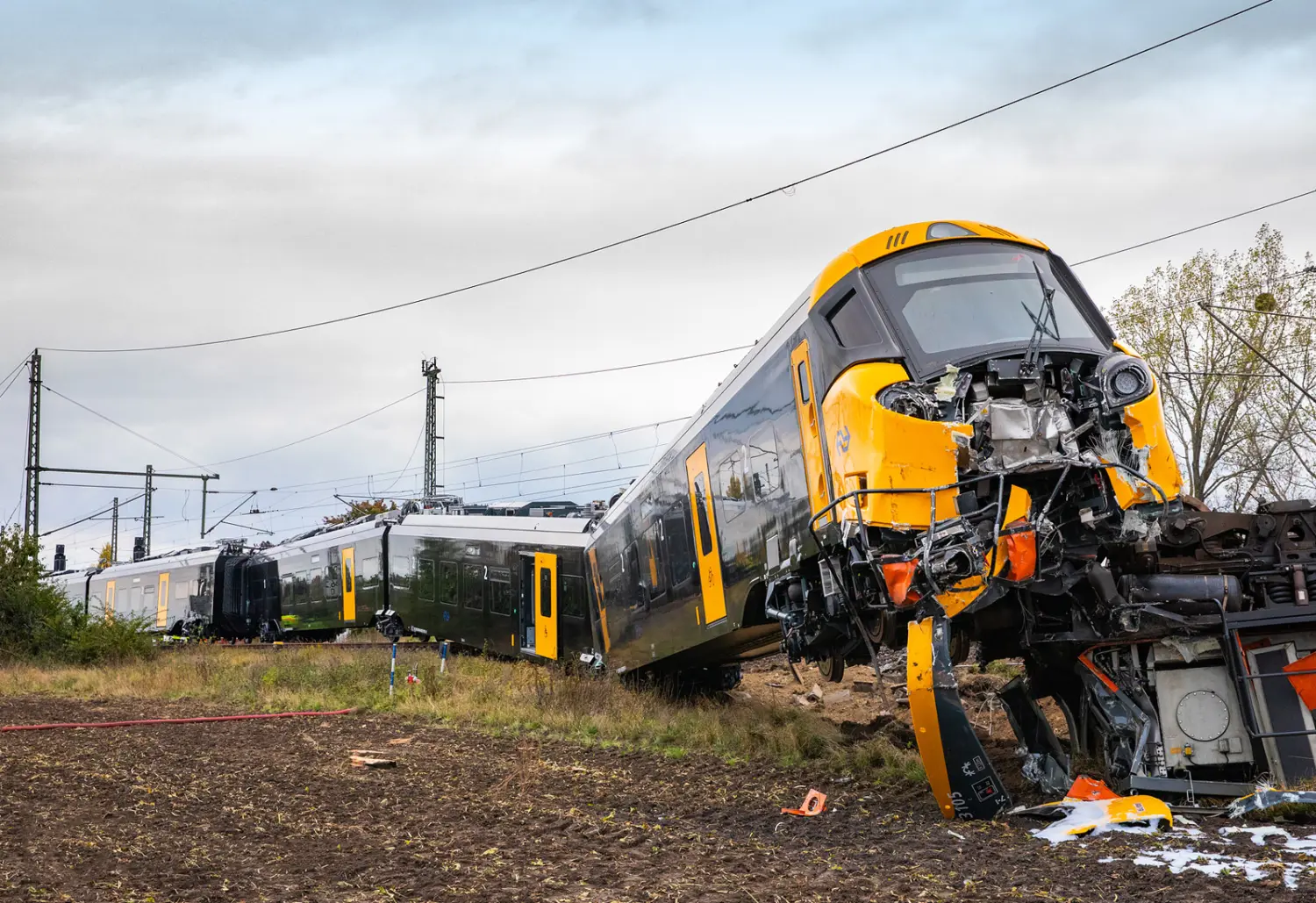
2021
February 17
The primary reason for this delay is the late delivery of the new Alstom ICNG trains. These trains are currently undergoing testing, and NS expects to introduce the first units into regular service by the end of 2021. However, the Covid-19 pandemic has impacted the production and delivery schedule, and NS anticipates that there will not be enough new units available by December 2022 to initiate services as planned. The following timeline outlines upcoming developments:
December 2021: The first ICNG trains will enter service on the Amsterdam-Rotterdam-Breda route via the high-speed line, with a maximum speed of 160 km/h. The ICNG will replace TRAXX MS2e locomotives and loco-hauled stock.
2022: ICNG will begin replacing TRAXX+ coaches between The Hague and Eindhoven. Once this replacement is complete and the trains operate reliably, the commercial maximum speed will increase to 200 km/h.
2024: After ICNG has successfully replaced all TRAXX+ coach trains on the aforementioned services, NS will start introducing them on additional services.
The ICNG test program was also temporarily suspended following the train crash in Germany.
2021
June 7
Sources: https://railcolornews.com/2021/06/11/be-expert-3301-it-is-icng-arrives-in-belgium/
2021
July
An introduction in 2022 remains also uncertain at this point, as software adjustments are necessary, and NS pointed out that it is uncertain how much time is needed to update the software during times of Covid-19.
2022
January
The train interior is divided into three zones: meeting, silence, and working. Each zone is characterized by a distinct lighting color: orange for the social meeting zone, purple for the silence zone, and blue for the working zone, which has a blue-lit ceiling.
Overall, the interior design is neutral, featuring light-colored side panels, light-colored tables, and a dark grey floor. The design avoids small quirky features. Art is displayed on the glass panel dividers, which feature subtle sound patterns, and in the bathroom module. The toilets are concealed by curtains, and once inside, passengers can view scenes of Dutch landscapes that change with the seasons.
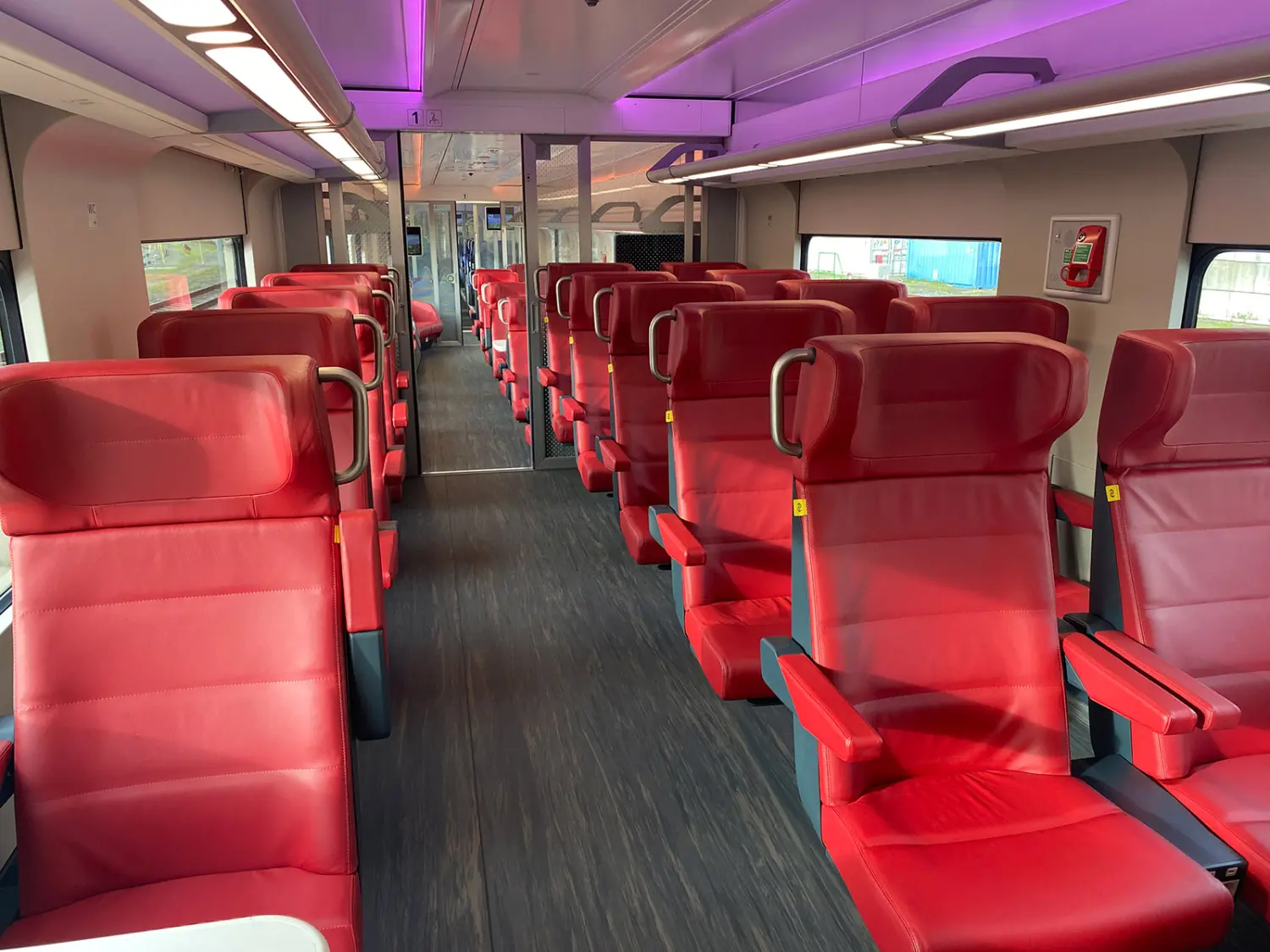
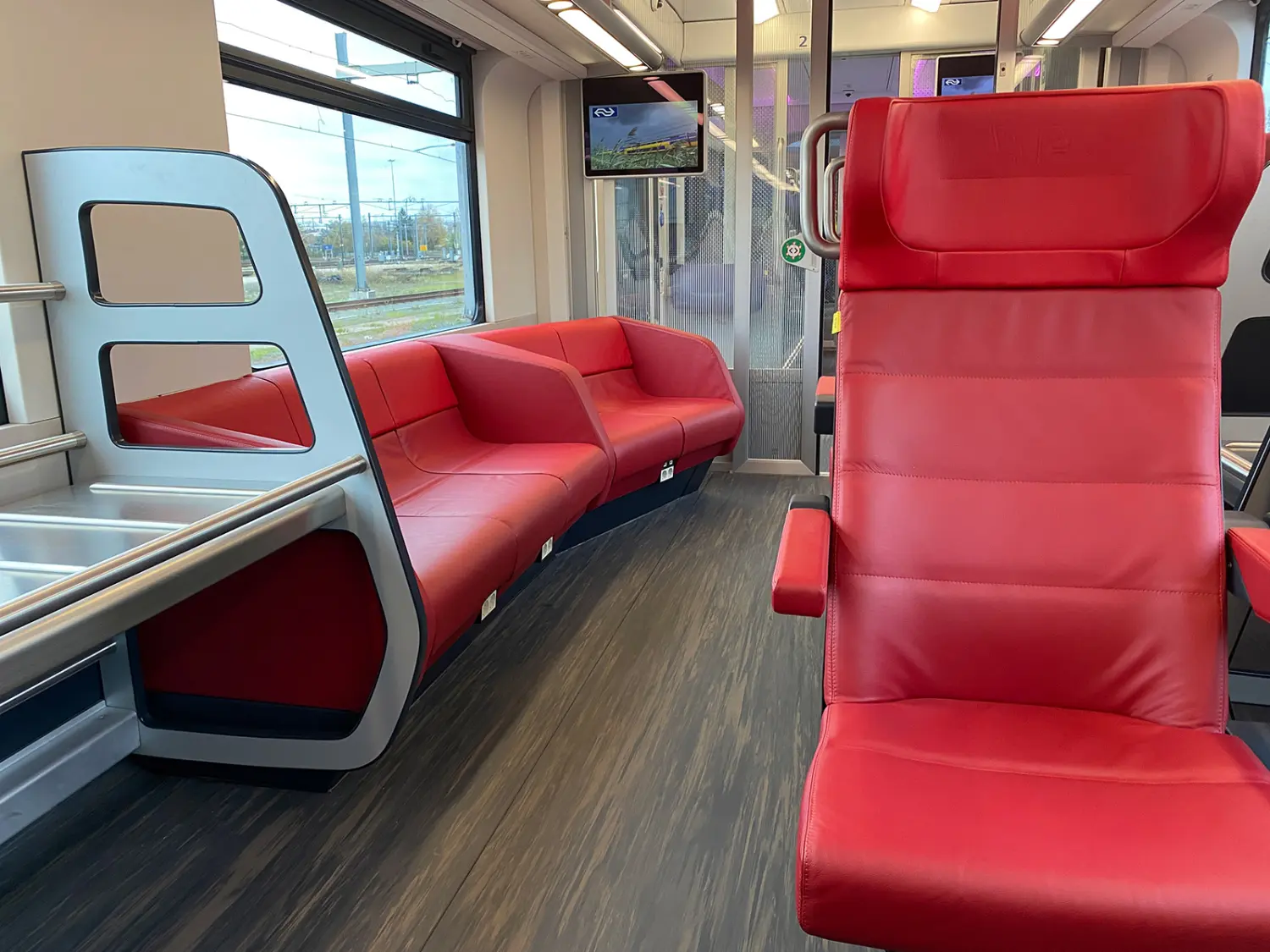
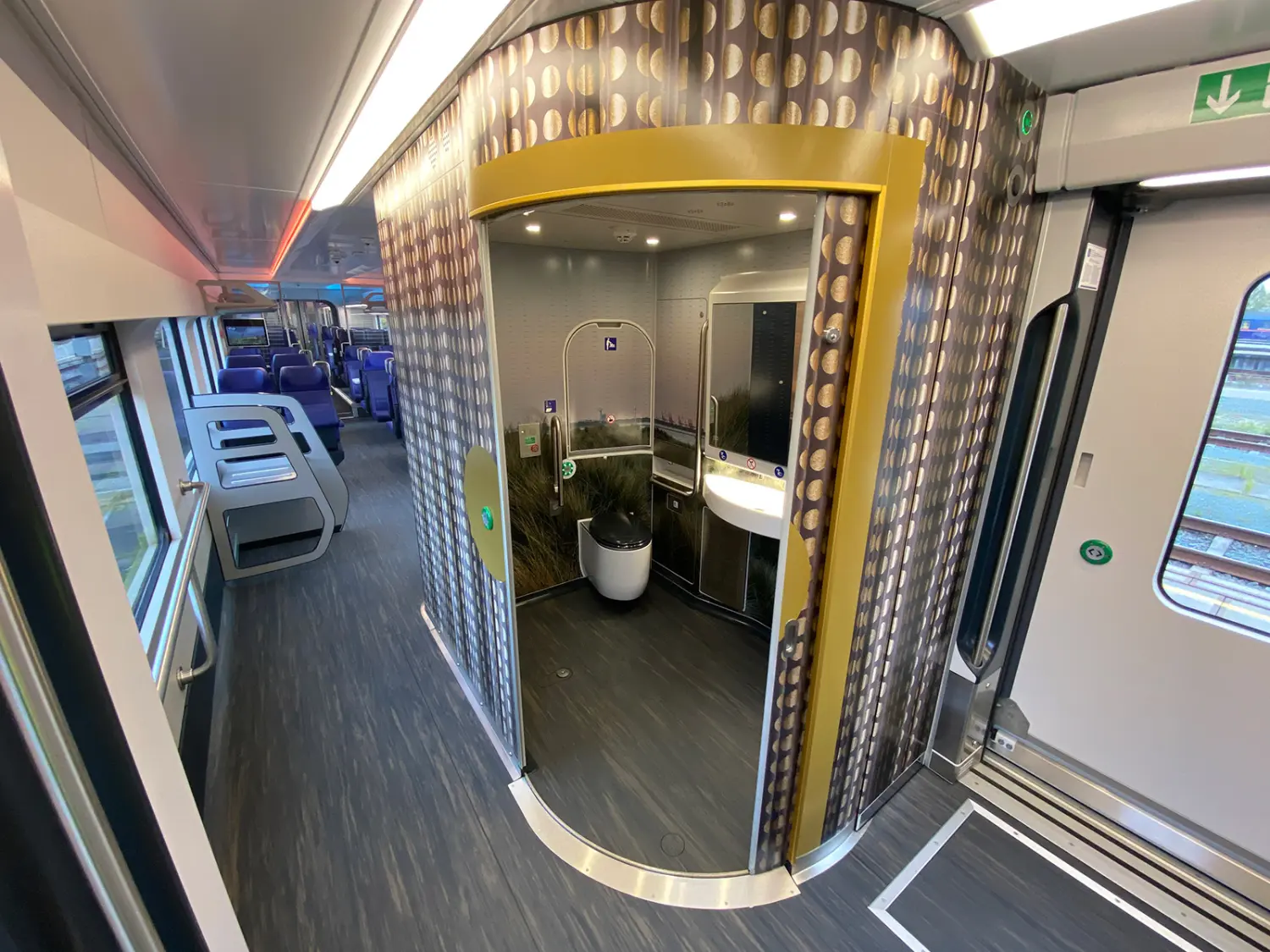
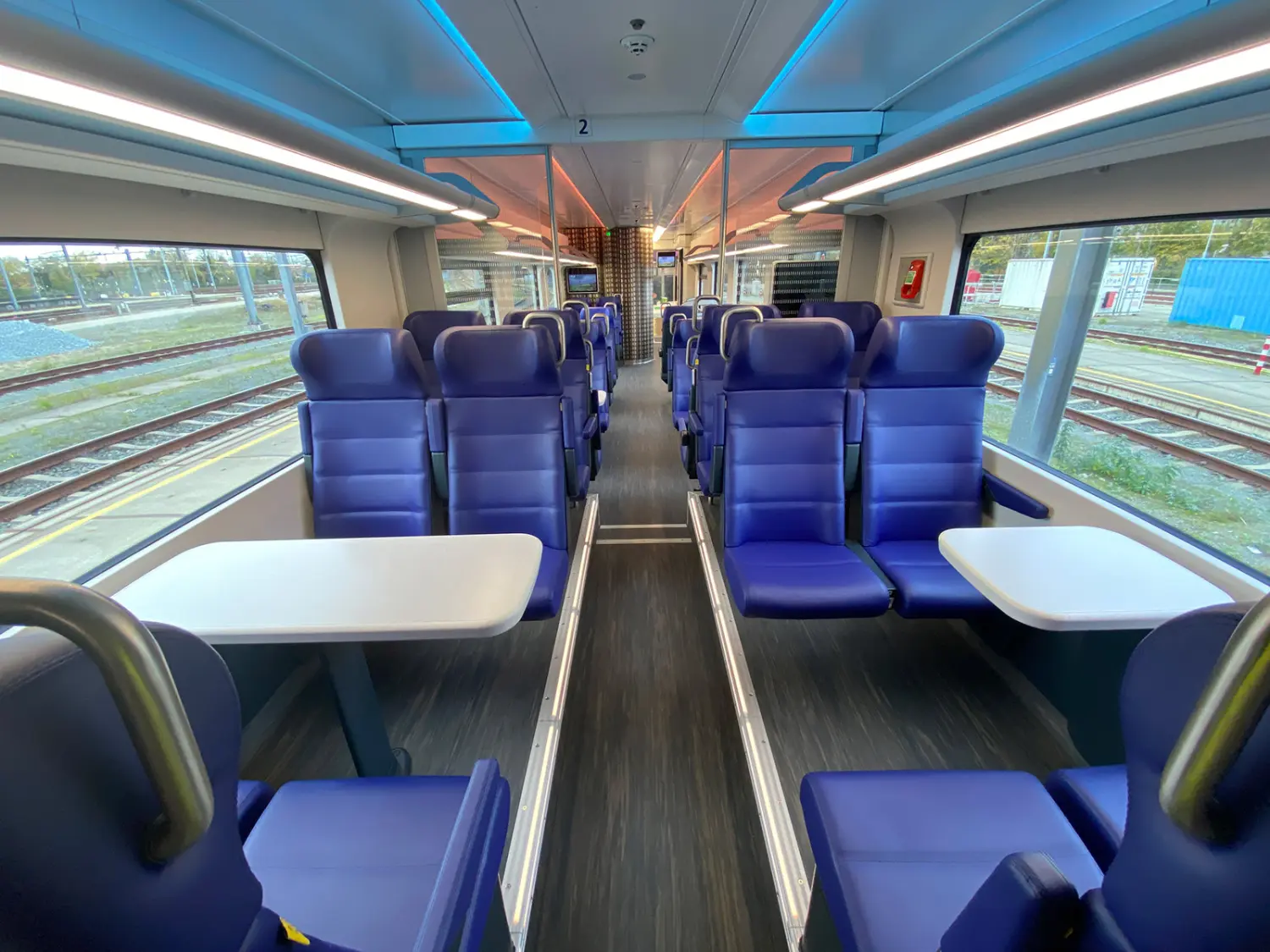
2022
December
NS cites several reasons for the delay, including new software, logistical challenges during production, and welding issues identified in March 2022.
Additionally, NS has released images of unit 3303 featuring a new "Flow" paint scheme that will be applied on the trainsets used on international routes:
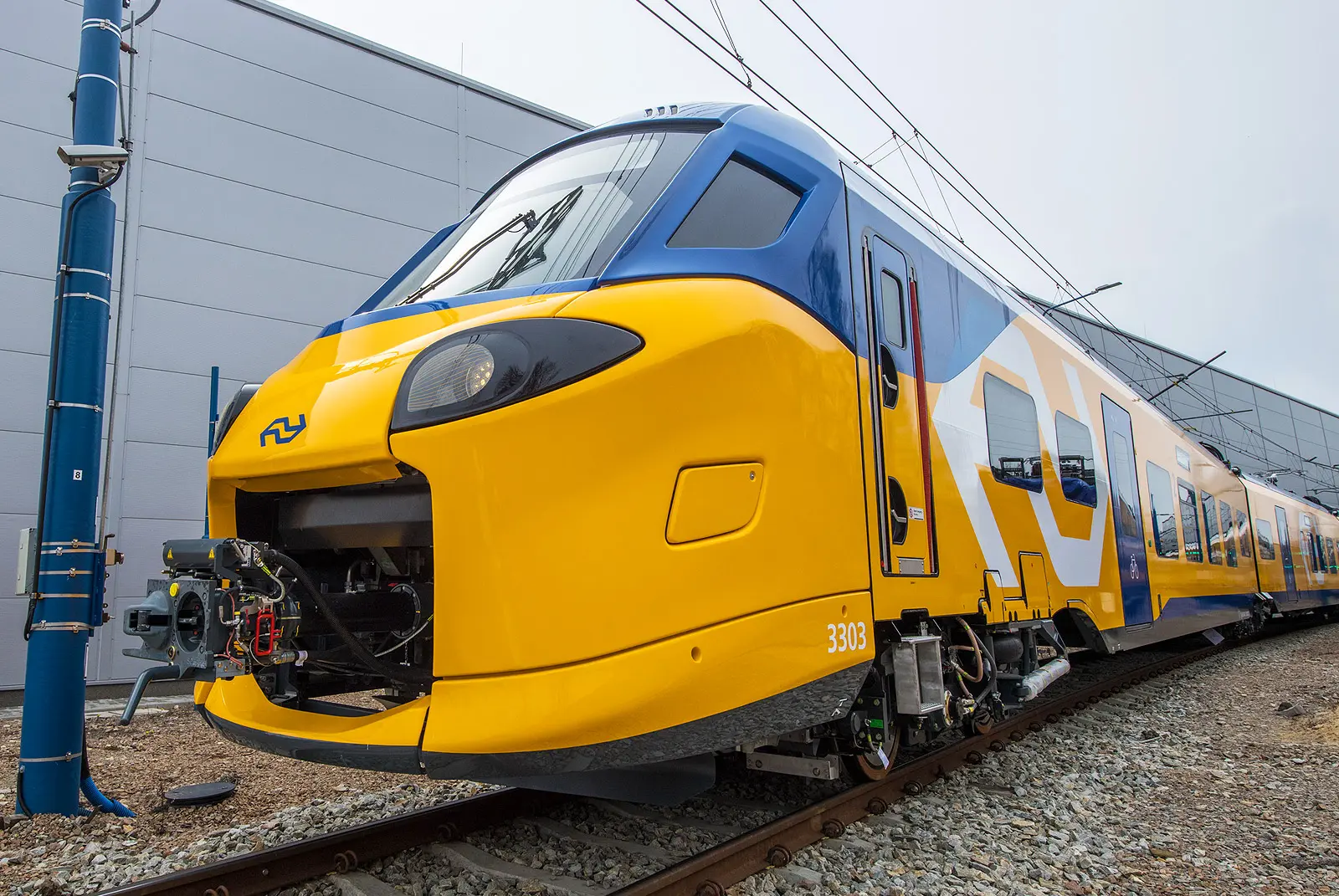
Sources: https://railcolornews.com/2022/12/06/nl-ns-introduces-icng-flow-design-delivery-not-so-flow/
2022
December 30
Sources: https://railcolornews.com/2023/01/13/nl-dutch-ilt-approves-ns-icng-for-commercial-service/
2023
49x five-car sets ICNG for the Netherlands 3101 - 3149 (same as before);
27x eight-car sets ICNG for the Netherlands 3201-3227 (down from 30x);
21x eight-car sets ICNG-B for the Netherlands and Belgium 3301 - 3321 (up from 20x);
2x eight-car sets ICNG-D (a new subtype) for the Netherlands and Germany with an additional option for 10x sets.
Sources: https://railcolornews.com/2023/12/18/nl-the-german-ns-icng-in-czechia/
2023
February
This was followed by the arrival of the 8-car ICNG 3222 on March 11th, 2023.
2023
April 19
Sources: https://railcolornews.com/2023/04/20/nl-19-04-2023-ns-icng-enters-revenue-service/
2024
July
Meanwhile, the delivery of these units continues with significant delays and at a slow pace. NS reports that it has received the 30th of a total of 109x trains, despite the fact that over 90x units have already been manufactured. Due to various issues, including software problems and welding quality concerns, 34x units have yet to return to the factory. The manufacturer Alstom has established a separate production line in Poland to repair these trains.
To further enhance the performance of ICNG trains, NS collaborates with Alstom on the following points:
Unwarranted braking messages: Drivers may receive unwarranted braking messages before departure. A software upgrade was initiated this month to address this issue, with all trains expected to be updated by the end of August.
Interior sliding doors: Last year, NS reported potential malfunctions of the interior doors. Improvements have been made to reduce the frequency of these issues, and a new software update is being developed to resolve the problem.
Door rubbers: Rainwater can enter the driver’s cab if the door is not locked. To address this problem, the cab doors have been equipped with thicker rubbers.
Climate system: During pre-cooling or heating of the driver’s cab, the air conditioning system produces more noise than desired, and airflow may be uncomfortable. NS is attempting to contact the manufacturer to adjust the climate system settings.
Sources: https://railcolornews.com/2024/07/13/passenger-ns-orders-more-icng-specifically-for-services-to-germany/, https://railcolornews.com/2024/07/29/passenger-ns-intermediate-reports-30-icngs-on-the-tracks-the-state-of-play/
2024
December 15
At launch, it is estimated that 10x out of the 21x units on order will be available for this service.
Do you have additional informations regarding this vehicle?
Help us writing the history of Class 3100 / 3200 / 3300! Your knowledge is precious for us and the entire community, do not hesitate to share your facts, photos or videos:
Latest update on the 3rd of March 2025 at 00:06
Contributor(s): Tudor C.
Discussion forum

